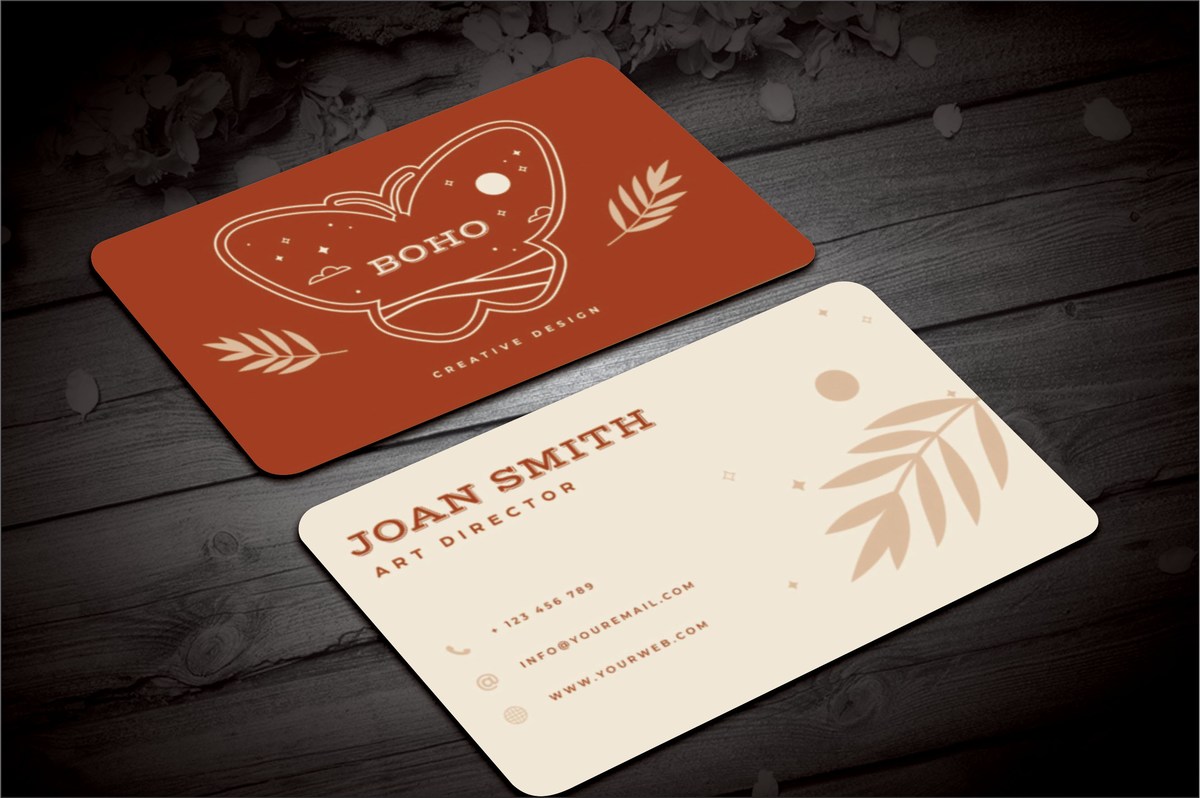Using Business Cards and Digital Contact Exchange Tools Efficiently
In today's digital age, the exchange of contact information has evolved significantly. While traditional business cards remain a staple in professional networking, digital contact exchange tools offer innovative ways to connect and maintain relationships.
Understanding how to use both traditional and digital methods efficiently can enhance your networking efforts and ensure you make lasting connections.
This article explores the best practices for using business cards and digital contact exchange tools to maximize your professional interactions.
The Art of the Business Card

Design and Content
A well-designed business card is more than just a piece of paper with your contact details; it is a representation of your brand. The design should be clean, professional, and reflective of your personal or company brand.
Key elements to include are your name, title, company name, phone number, email address, and website. Consider adding your social media handles if they are relevant to your professional identity.
Quality Matters
Investing in high-quality business cards can make a significant impact. The texture, weight, and finish of the card contribute to the impression you leave. A sturdy, well-printed card conveys professionalism and attention to detail.
Consider using special finishes such as matte, gloss, or even metallic accents to make your card stand out.
Strategic Distribution
Handing out business cards strategically is crucial. Rather than distributing them to everyone you meet, focus on meaningful exchanges where there is a potential for a lasting professional relationship.
During networking events, conferences, and meetings, offer your card after a conversation to ensure it is received with context and appreciation.
Embracing Digital Contact Exchange Tools
The Rise of Digital Business Cards
Digital business cards have gained popularity due to their convenience and eco-friendliness. These virtual cards can be shared via smartphones, email, or QR codes, allowing for instant exchange of information.
Platforms like HiHello, CamCard, and VCard offer customizable digital cards that can include links to your social media profiles, websites, and more.
QR Codes and NFC Technology
QR codes and Near Field Communication (NFC) technology provide seamless ways to share contact information. QR codes can be printed on traditional business cards or displayed on your phone for quick scanning.
NFC-enabled cards or devices allow users to tap their phone to transfer contact details instantly. These technologies eliminate the need for manual entry, reducing the risk of errors and making the exchange process more efficient.
Digital Contact Management
Managing contacts digitally helps keep your professional network organized. Tools like Evernote, Google Contacts, and HubSpot offer features to store, categorize, and retrieve contact information easily.
They also provide options to add notes, set reminders for follow-ups, and integrate with your email and calendar, ensuring you stay connected with your contacts.
Combining Traditional and Digital Methods
Hybrid Approach
A hybrid approach, combining traditional business cards with digital tools, can maximize your networking efforts. For example, you can print a QR code on your physical business card that links to your digital business card or LinkedIn profile.
This allows you to leverage the tactile experience of a physical card while providing the convenience of digital contact information.
Follow-Up Strategies
Effective follow-up is key to converting a contact into a meaningful connection. After exchanging business cards or digital contact information, send a personalized follow-up message within 24-48 hours.
Mention a specific detail from your conversation to jog the recipient's memory and express your interest in staying in touch. Digital tools like LinkedIn and email make it easy to maintain and nurture these connections over time.
Networking Etiquette
Whether using traditional or digital methods, networking etiquette remains important. Always ask for permission before sending a digital business card or connecting via social media. Be mindful of the context and setting in which you exchange information, ensuring it feels natural and respectful.
Showing genuine interest in the person you are connecting with fosters positive professional relationships.
Future Trends in Contact Exchange
Virtual Networking Events
The rise of virtual networking events has transformed how professionals connect. Platforms like Zoom, Microsoft Teams, and Hopin offer integrated features for digital contact exchange, making it easy to share information during virtual meetings and conferences.
As these events become more common, mastering the use of digital tools will be increasingly important.
AI and Automation
Artificial Intelligence (AI) and automation are revolutionizing contact management. AI-driven tools can automatically capture and organize contact information from emails, messages, and social media interactions.
These tools can also provide insights into your network, suggesting opportunities for engagement and follow-up based on interaction patterns.
Sustainability Considerations
As environmental concerns grow, the shift towards digital contact exchange tools aligns with sustainability efforts. Reducing the use of paper business cards and opting for digital alternatives can significantly lower your carbon footprint.
Additionally, digital tools offer the flexibility to update and customize your contact information without the need for reprinting, further supporting sustainable practices.
Conclusion
Efficient use of business cards and digital contact exchange tools is essential for modern networking. By combining the tactile appeal of traditional business cards with the convenience and functionality of digital tools, you can enhance your professional interactions and build a robust network. Stay abreast of emerging trends and technologies to ensure your contact exchange methods remain effective and aligned with contemporary practices. By doing so, you will not only expand your professional network but also strengthen your relationships, paving the way for future opportunities and collaborations.
- HiHello: Digital Business Cards
- CamCard: Business Card Scanner
- Evernote: Contact Management
- Google Contacts: Organize Your Contacts
- HubSpot: CRM Tools
- LinkedIn: Professional Networking
- Zoom: Virtual Networking Features
- Microsoft Teams: Collaboration Tools























![[ℕ𝕖𝕧𝕖𝕣] 𝕊𝕖𝕝𝕝 𝕐𝕠𝕦𝕣 𝔹𝕚𝕥𝕔𝕠𝕚𝕟 - Is Trump Dying? Or Only Killing The Market?](https://cdn.bulbapp.io/frontend/images/a129e75e-4fa1-46cc-80b6-04e638877e46/1)








































